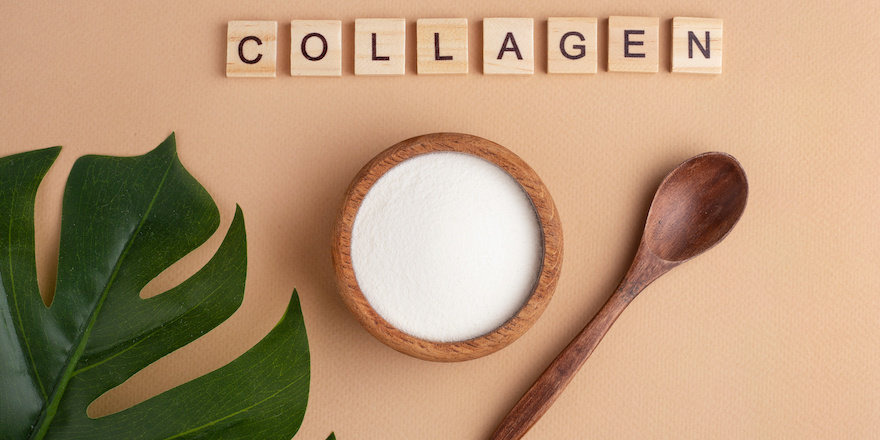Before hitting the nutrition shelves, collagen is a protein naturally produced by the human body. Bones, tendons, joints, muscles, skin: most of our tissues contain it. Nothing more natural!
Its role? To aid in joint comfort, keep skin resilient and toned, and maintain healthy blood vessels, etc. In short, collagen is essential.
And if in recent years, this molecule has appeared in capsule, drink, or powder form, it’s not for nothing. From the age of 20, the body’s production gradually slows down. The result is the appearance of wrinkles and joint pain over the years.
In dietary supplement stores and on social media, I see bovine, marine, and even porcine collagens becoming more common. Not very vegan-friendly, all that! To meet demand and suit all diets, vegan collagen is being introduced alongside other supplements.
Read also | The best marine collagen according to a pharmacist
What ‘vegan collagen’ means
A marketing label
How can a normally animal protein be found in plants? No need to keep the suspense until the end: No, vegan collagen does not exist.
This molecule is only useful in the animal kingdom. Plants do not need it to grow and function properly. They have molecules specific to their kingdom. But no collagen!
So, why do products indicate this term on their packaging? It’s a purely marketing label.
I took a closer look at dietary supplements, as well as cosmetics labeled ‘vegan collagen’: there are subtleties indicated on the product sheets.
Thus, we distinguish two types of supplements.
Collagen boosters
These are a combination of plants and ingredients that provide nutrients precursors to collagen synthesis. They will promote its production.
If you take the example of a car, fuel boosts it so that it can function. Here, it’s the same!
‘Plant collagens’
It’s the term that causes the most confusion, leading one to initially believe that plant collagen exists.
In reality, it is an assembly of plants containing certain amino acids found in regular collagen, namely glycine, proline, and hydroxyproline.
But just because these plants provide some of the amino acids, doesn’t mean it is possible to recreate the collagen molecule. However, these amino acids can still participate in endogenous protein production, as this study I found on the subject indicates.
Some patented compounds, like Coll-egan®, combine the two methods: rich in amino acids, they also add vitamin C to their complex to promote the production of the protein.

How to provide collagen to the body if you are vegan?
No worries! You can be vegan and still try to give your body a little nudge to naturally produce collagen.
Apart from supplements, a few dietary habits may support your synthesis:
- enrich your diet with antioxidants to combat the breakdown of collagen
- include vitamin C to boost its synthesis
- eat enough protein to provide amino acids to the body



